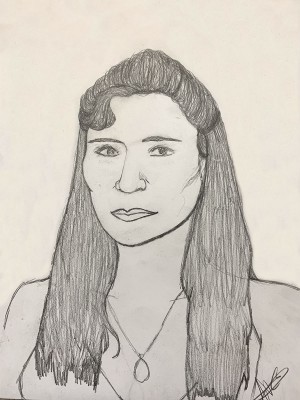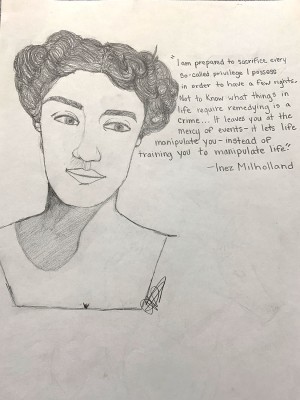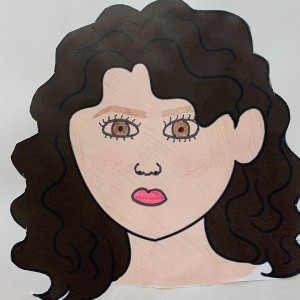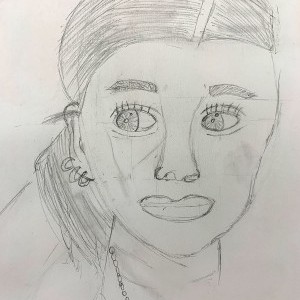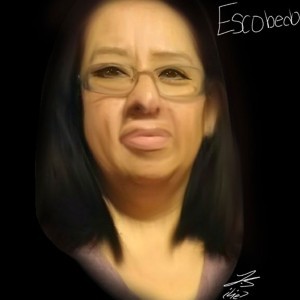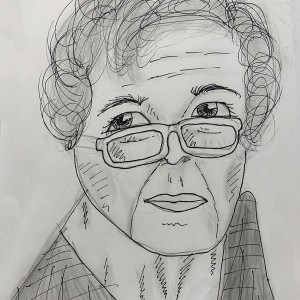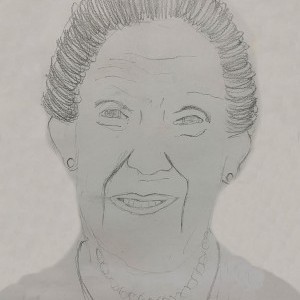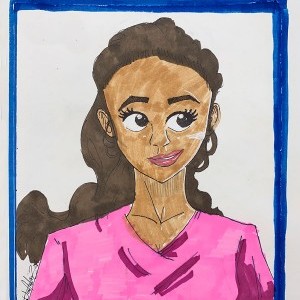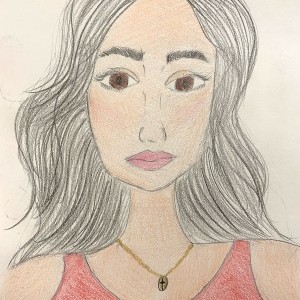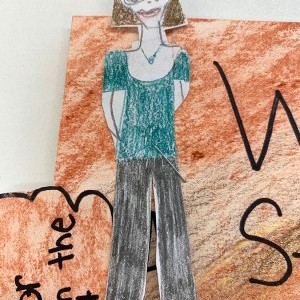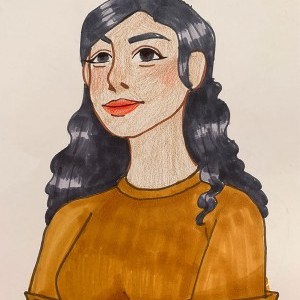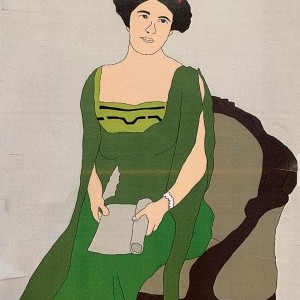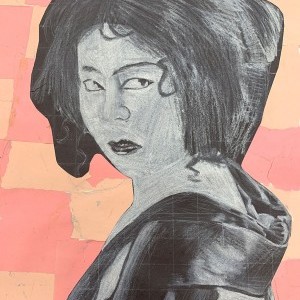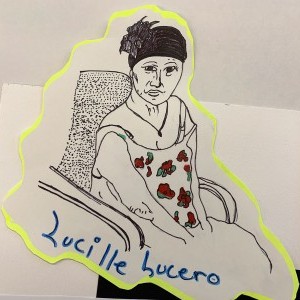Crystal Sanchez
Kunsmiller Creative Arts Academy | Denver, CO | 11th Grade
Inspirational Family Member
My Mother
In this day and age, it’s clear to say it’s easier to vote than in the past. When it comes to my mother, it’s different compared to the people here in the U.S. My mother wasn’t allowed to vote until she had her residency and citizenship. My mother’s experience according to her was simply to vote. She states that she felt normal and calm when she first voted. I also asked her why she chooses to vote and continues to vote, her response was, “Porque es me derecho como ciudadana de Los Estados Unidos.” ("Because it is my right as a citizen of the United States.") I tried to get her to explain more, and she said that her vote can help better the country. It’s clear to me that it’s important to her as a Mexican, who shows pride in what she does. Even though I can’t vote this year, I know it’s easier for me to vote since I was born here in the US. Currently, voting can be difficult when it comes to choosing for the better of the community and country. Especially choosing out of the terrible choices we have for people who are running for president.
When I think about voting, I want to make sure I get to pick the best for our community – hopefully, to bring about change for future generations. And I agree with my mom with wanting the best, even if sometimes I wonder how much our votes really matter. According to what I have learned, when counting votes in the Electoral College system, each state gets a certain number of electors based on its total number of representatives in Congress. Each elector casts one electoral vote following the general election; there are a total of 538 electoral votes. The candidate that gets more than half of the votes (270) wins the election. Nevertheless, learning from my mother’s voting experience was a fascinating exposure to studying women’s voting rights.
Historical Figure I Admire
Inez Milholland Boissevain
The 19th Amendment provides men and women with equal voting rights. The amendment states that the right of citizens to vote "shall not be denied or abridged by the United States or by any State on account of sex." Inez Milholland Boissevain was a suffragist, labor lawyer, World War I correspondent, and public speaker that greatly influenced the women's suffrage movement in America. She was active in the National Woman's Party and a key participant in the 1913 Woman Suffrage Procession. A fervent human rights activist and public speaker, she was credited with influencing the women’s movement in the United States. In many ways, she became the popular face of the movement due to her participation in public events. She led her first suffrage parade on May 7, 1911, and by March of 1913, she helped organize and lead the Woman Suffrage Procession in Washington DC, which took place the day before President Woodrow Wilson’s inauguration.
Inez Milholland received her education at the Comstock School in New York and Kensington Secondary School in London. After finishing school, she decided to attend Vassar but when the college would not accept her graduation certificate she attended Willard School for Girls in Berlin, Connecticut. During her attendance at Vassar, she was once suspended for organizing a women's rights meeting. The president of Vassar had banned the suffrage meetings, but Milholland and others held regular "classes" on the issue, along with organizing protests and petitions. Not allowing the ban to stop her, she started the suffrage movement at Vassar, enrolled two-thirds of the students, and taught them the principles of socialism. Milholland was also involved in student productions. After graduating from Vassar in 1909, she tried for admission at Yale University, Harvard University, and Cambridge University with the purpose of studying law, but was denied due to her gender. Milholland finally enrolled at the New York University School of Law, from which she received her LL.B. degree in 1912.
Inez Milholland was active in the National Woman's Party and a key participant in the 1913 Woman Suffrage Procession. On March 3, 1913, the eve of President Woodrow Wilson's inauguration, Milholland, 27, majestically led the Woman Suffrage Procession in Washington DC, which she had helped organize. Suffrage leader Alice Paul placed her at the head of the parade wearing a crown and a long white cape riding a large white horse named "Gray Dawn." Horses became a very common method of spreading information about the suffrage movement and other suffragists rode horses to raise awareness for the movement. Milholland believed that women’s unique qualities entitled them to the right to vote. She argued that women would metaphorically become the "house-cleaners of the nation." She believed women's votes could remove social ills such as prostitution, hunger, poverty, and child mortality. Even though she spoke on these issues, she was disappointed that she was better known for her looks than her brains. In conclusion, Inez Milholland Boissevain was a suffragist and public speaker who greatly influenced the women's movement in America.
What the Project Means to Me
It goes without saying that researching my mom’s political views is very interesting. I got to learn about her being one of the first women in my family to vote in the United States. I’m surprised by her responses to the questions I asked her. Her experience was normal according to my mother. I have asked her if anyone in our family was denied the vote. She explains how her siblings (tias/tios) were denied because of their documents status. My mother was the first to get her citizenship here in the US out of her siblings. Her views on voting were fairly simple. My mom chooses to vote because as she states “it’s my right as a citizen, and it can improve our country.” Although she also says that sometimes it’s pointless because the electors get to do whatever they want with the power we give them. On the other hand, she still votes anyways. From the information that I got from my mom, my family has that barrier of obtaining their citizenship in order to vote in the US.
On the topic of immigrants, I personally think it’s unjust that many other immigrants like my family, can’t have the right to vote but have to pay taxes. Furthermore, my family doesn’t really talk a lot about politics and voting. But when we’re on the topic, it can get intense. Of course like any other people, when all have different political views.
Explore the Archive
More From This Class
Click on the thumbnails below to view each student's work.Deadline Extended
There's still time to join Women Leading the Way.
Become a part of our storytelling archive. Enroll your class today.
Join the Project

